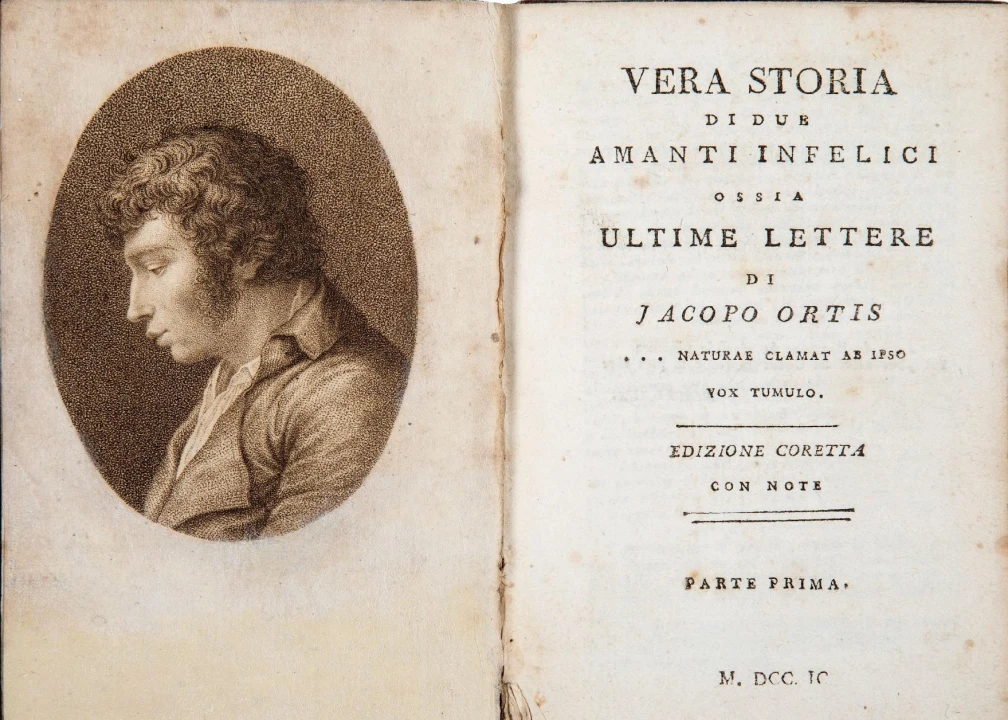Published in 1802, The Last Letters of Jacopo Ortis is one of the most famous works of Italian poet and writer Ugo Foscolo. Foscolo was born in Zante, Greece, in 1778 and died in London in 1827. His birth name was Niccolò, his mother was Greek, and his father came from Venice. At that time the Greek island was governed by the city of Venice and therefore Foscolo had always recognized both countries as his homeland.
After the death of his father, the family moved to Venice, where Foscolo started to pursue his irregular studies and sided with the revolutionary and Jacobin cause. He fought against the Austro-Russian and in the Italian division in France. In 1813, he went back to Milan and committed himself to the defense of the Italic kingdom.
He is one of the major exponents of the Italian literature during the Neoclassicism and early Romanticism; as a matter of fact, the book here described – which is an autobiographical epistolary novel – belongs to the Romantic period.
The book is written as an epistolary monologue and has been described as “a compelling portrayal of a troubled mind”. In fact, the story focuses on Jacopo Ortis who, after being banned from his country and from the woman he loves, feels disillusioned and betrayed as he sees his aspirations of gaining literary success gone and lost.
The book obtained significant success and wide distribution in Europe, inspiring those who were fighting against the Napoleonic domination and for their country’s freedom.
After leaving Venice, Jacopo Ortis finds himself alone in the Colli Euganei, where he falls in love with a woman called Teresa, but she is already betrothed to another man, Odoardo. Jacopo decides then to write letters to his friend Lorenzo Alderani telling him about his deep love for Teresa.
Consequently, Jacopo begins travelling throughout Italy without a specific destination. During his journey, he is constantly affected and saddened by “the tragedy of foreign oppression”. In the end, he is doubly disappointed by his life and his country.
After the time spent wandering through the country, Jacopo goes back to the Colli Euganei where, in the meantime, Teresa got married to Odoardo. After realizing that his dreams of finding love and embracing liberty in his homeland are shattered, Jacopo kills himself.
The book clearly reflects the political and sentimental experiences of its author.
The protagonist of this book has lived through profoundly painful experiences that left him heart-broken, alone and disillusioned with life and liberty; his only comfort are his friends and his impossible love for Teresa. In the end, he decides that the only way to alleviate his pain and suffering is a drastic and ultimate act.
The story is likely based on the true story of the Italian student Girolamo Ortis and is characterized by features from the author's own life.




